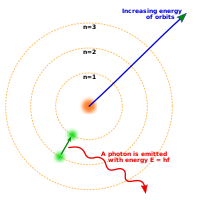
Back Analogie Afrikaans تمثيل (منطق) Arabic Analogiya Azerbaijani Аналогия Bulgarian সাদৃশ্য Bengali/Bangla Аналоги BXR Analogia Catalan پێکچوواندن CKB Analogie Czech Analogi Danish
This article has multiple issues. Please help improve it or discuss these issues on the talk page. (Learn how and when to remove these messages)
|
Analogy is a comparison or correspondence between two things (or two groups of things) because of a third element that they are considered to share.[1]
In logic, it is an inference or an argument from one particular to another particular, as opposed to deduction, induction, and abduction. It is also used of where at least one of the premises, or the conclusion, is general rather than particular in nature. It has the general form A is to B as C is to D.
In a broader sense, analogical reasoning is a cognitive process of transferring some information or meaning of a particular subject (the analog, or source) onto another (the target); and also the linguistic expression corresponding to such a process. The term analogy can also refer to the relation between the source and the target themselves, which is often (though not always) a similarity, as in the biological notion of analogy.

Analogy plays a significant role in human thought processes. It has been argued that analogy lies at "the core of cognition".[2]
- ^ "Analogy". The Oxford Companion to the English Language$ The Oxford Companion to the English Language (2 ed.). Oxford University Press. 2018. ISBN 978-0-19-966128-2. Retrieved 11 June 2023.
- ^ Hofstadter, Douglas. "Analogy as the Core of Cognition". Language, Cognition, and Computation Seminar Series. MIT. Retrieved 13 June 2023.